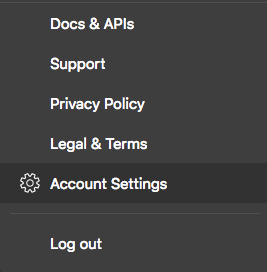In the past, when I told friends or family members that I wanted to pursue a career in software development, they looked at me as if I were crazy. I grew up on a farm and have always been a mechanically-inclined person who enjoyed hands-on work.
I attended Iowa State University to study Agricultural Engineering, thinking that a mechanical-based future was my calling. It wasn’t until I had taken some basic programming courses during my senior year that I really started to take a career in software development seriously. But rather than start over in a software-related major, I decided to give my chosen field another shot, and I took a job as a project manager after completing my degree.
My main responsibilities were to oversee the planning, design, and construction phases of new construction and maintenance projects at an ethanol plant. I quickly realized that I was too far away from the actual work being done, and wanted a career where I could directly impact or “build” the solutions to problems. This led me to try my hand at software development.
I started to teach myself the basics of programming to confirm that I wanted to pursue a career in software. I spent most evenings and weekends reviewing and studying every possible resource I could find. It became my hobby, and soon I knew for sure that I wanted to take a leap of faith and change careers. I discovered a company called HCSS that developed software for the construction industry, and, as it turned out, they were hiring entry-level software developers. HCSS was also consistently rated as one of the “Best Companies to Work for in Texas.”
Even after I was hired, I wondered to myself if HCSS was too good to be true, but it really is an awesome place. Aside from getting so much fulfillment out of my job — every single day, I get to tackle problems head on while creatively building solutions to problems — there’s also an awesome workplace culture here. The people here care about each other, and are passionate about creating great products for our customers.
One of the best examples of that came during Hurricane Harvey. Unfortunately, I was flooded out of my home, and I sought refuge at the office. I hadn’t been there more than 30 minutes when some coworkers (whom I hadn’t even met yet) offered their home to us to give us shelter. This incredible act of kindness was repeated throughout the company, as many of my coworkers offered up their time and their homes to help people devastated by the flooding.
Now I am no longer overseeing job sites, but I am empowering our customers in their efforts to build America. HCSS provided an in-depth training program for one of our core programming languages, and upon graduating that program I was able to hit the ground running. Every day is a new adventure, and HCSS has given me both the skill and the opportunity to tackle them.
Credit: Photography by Josh Espinoza


